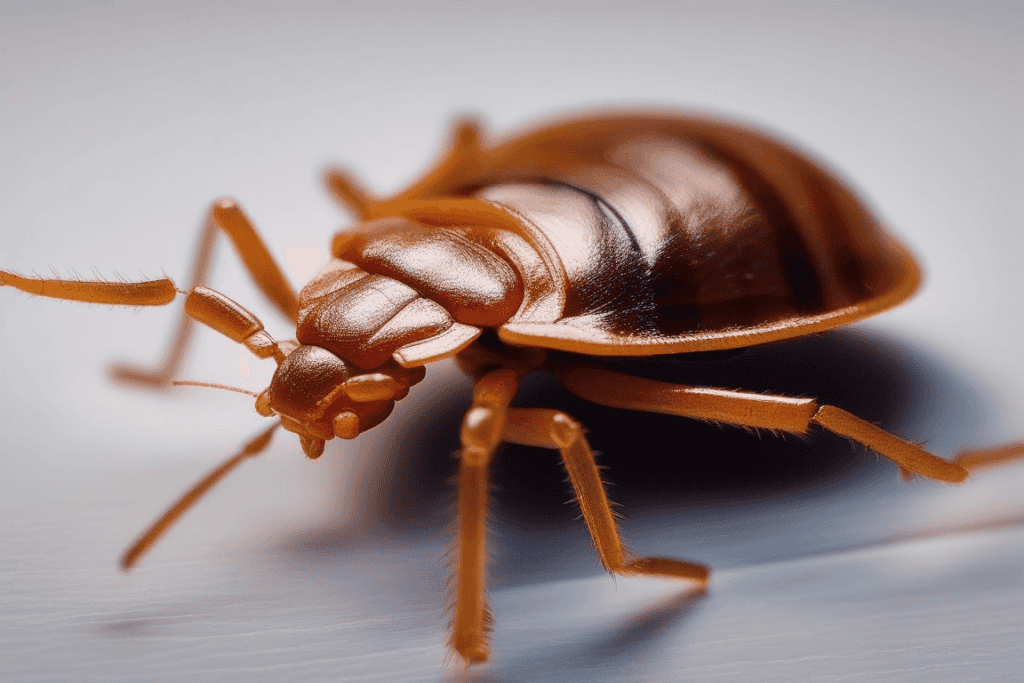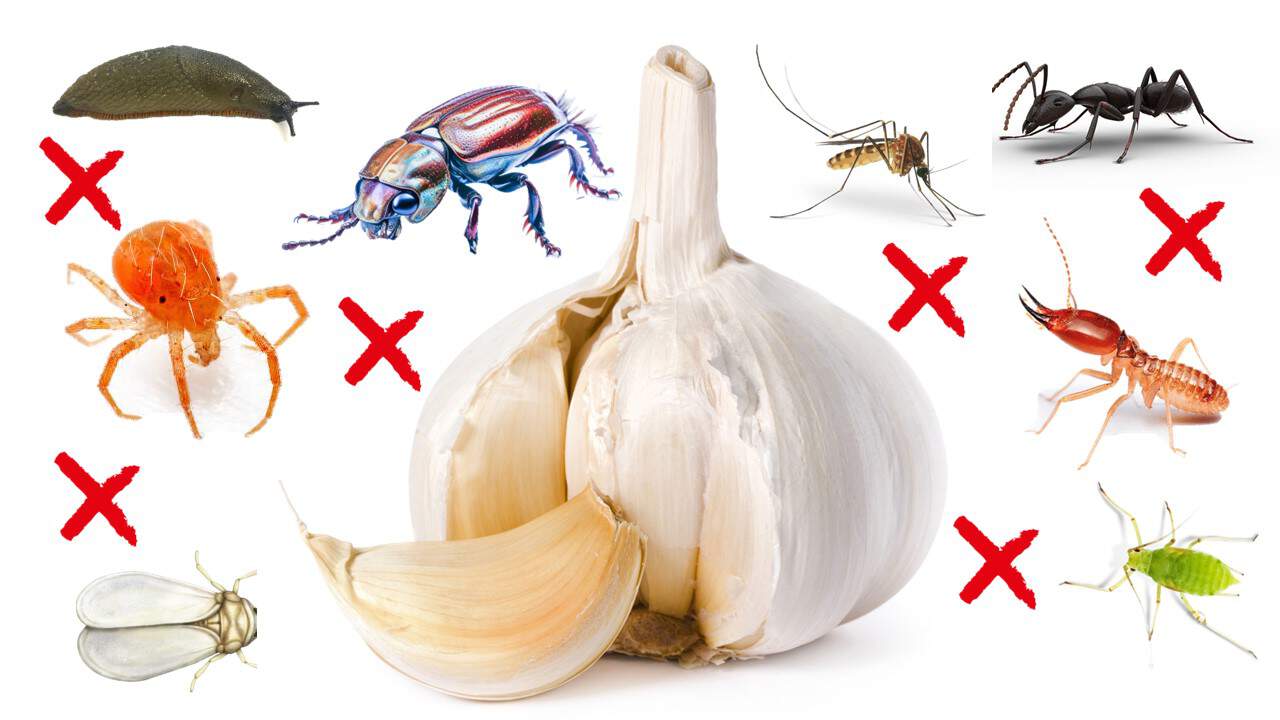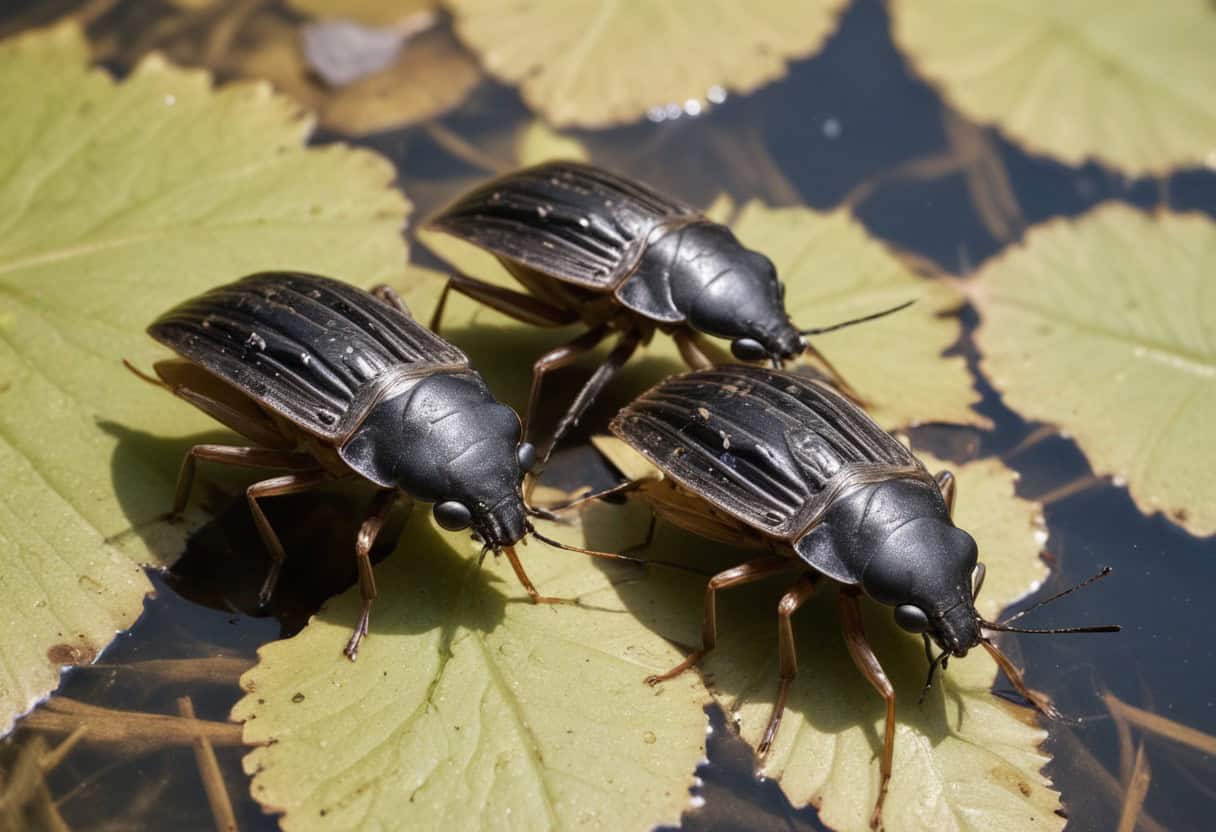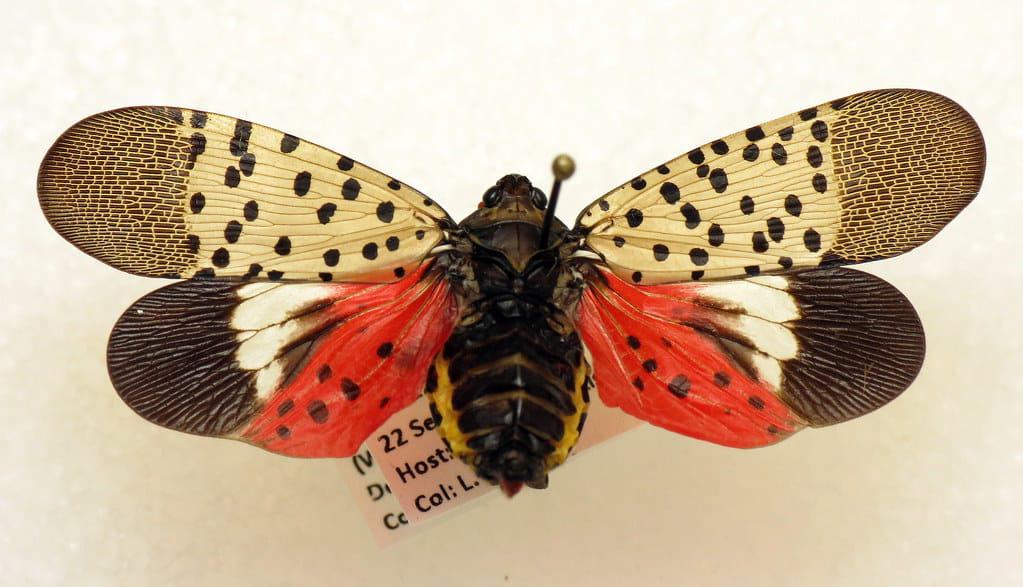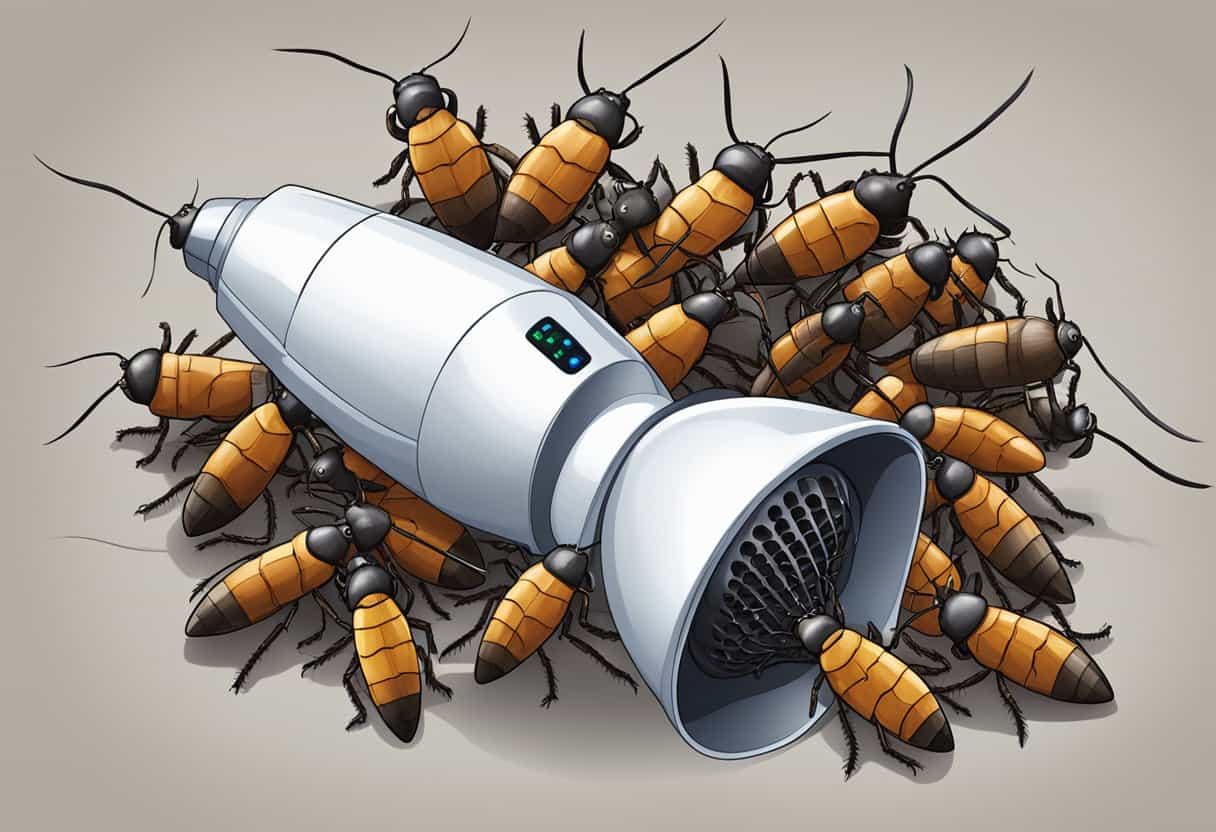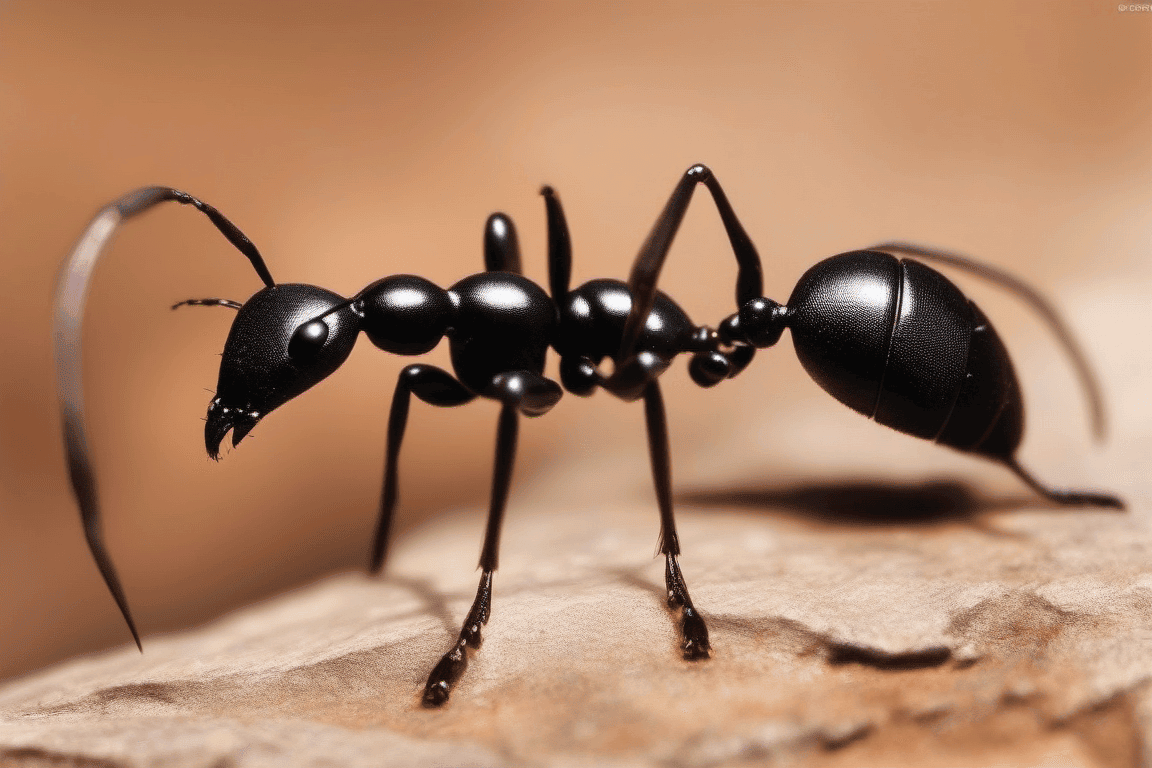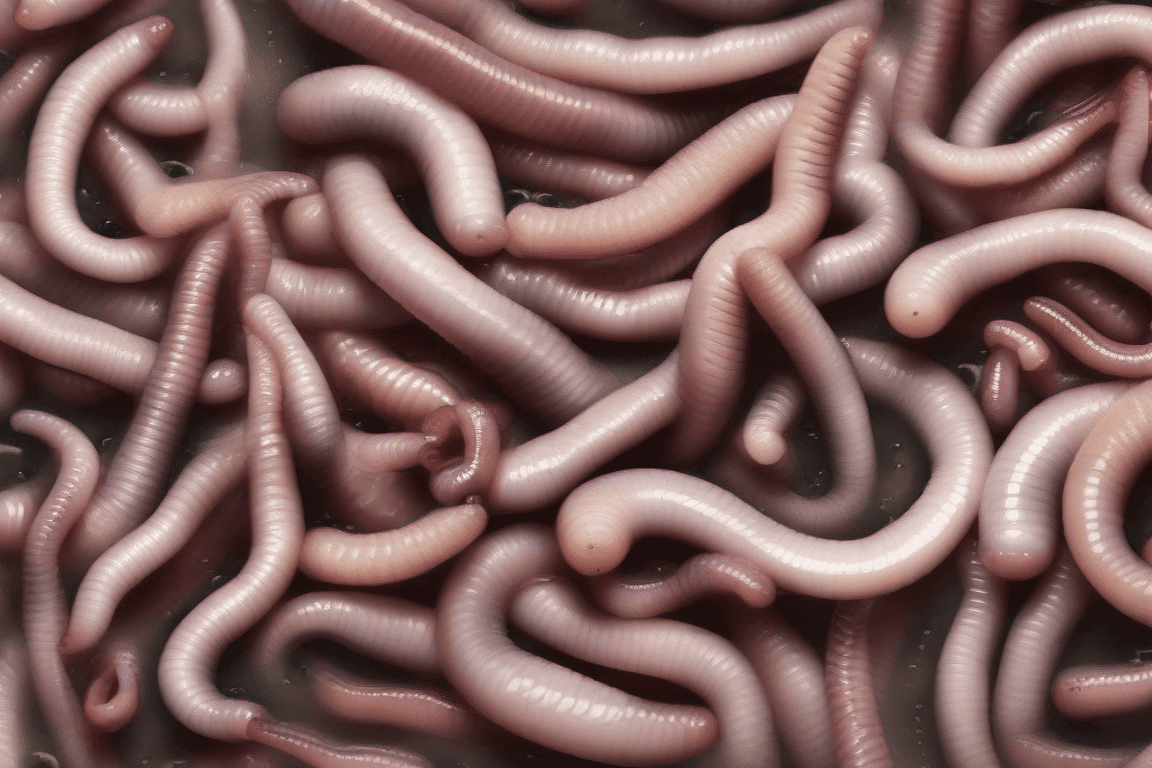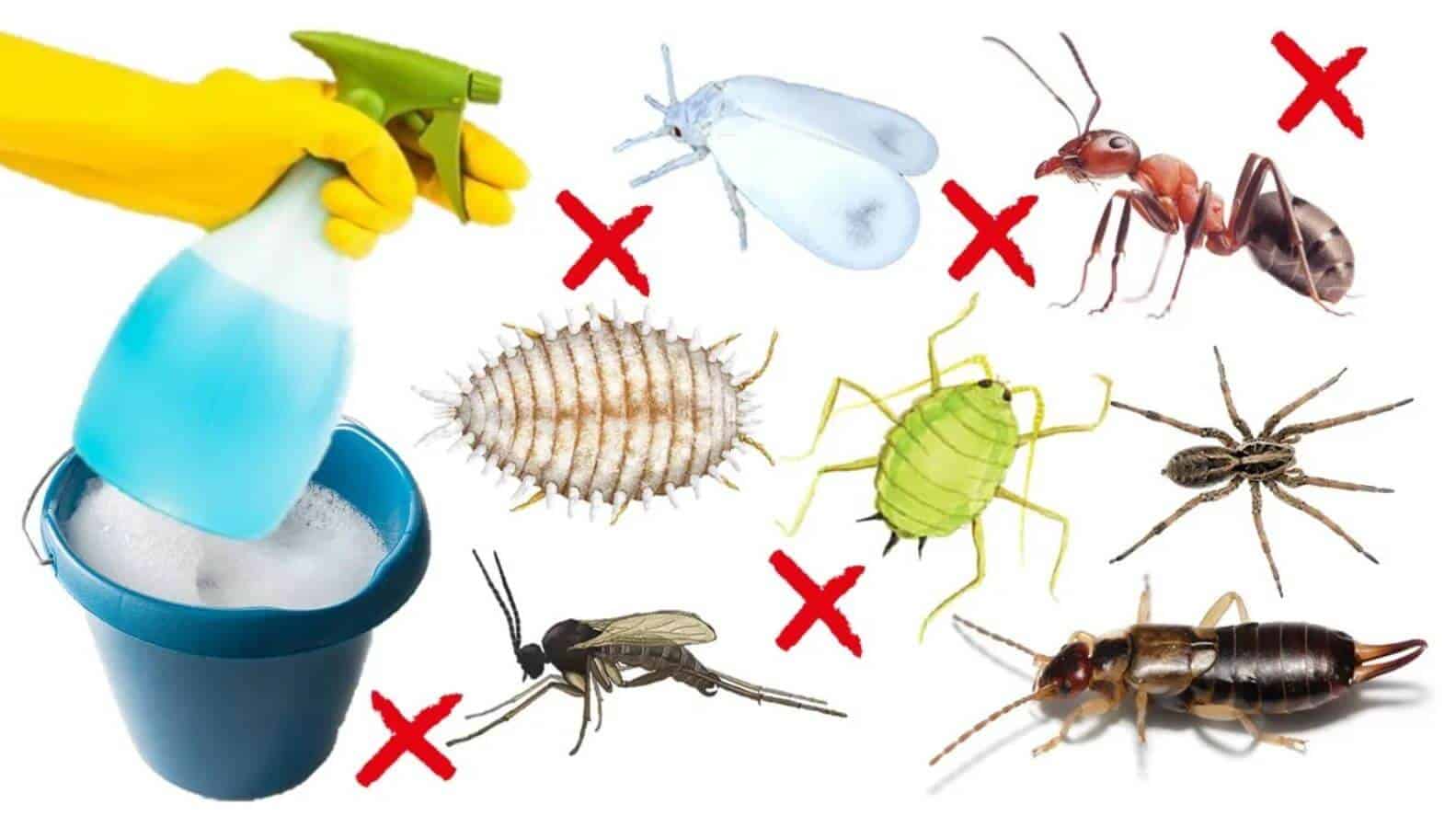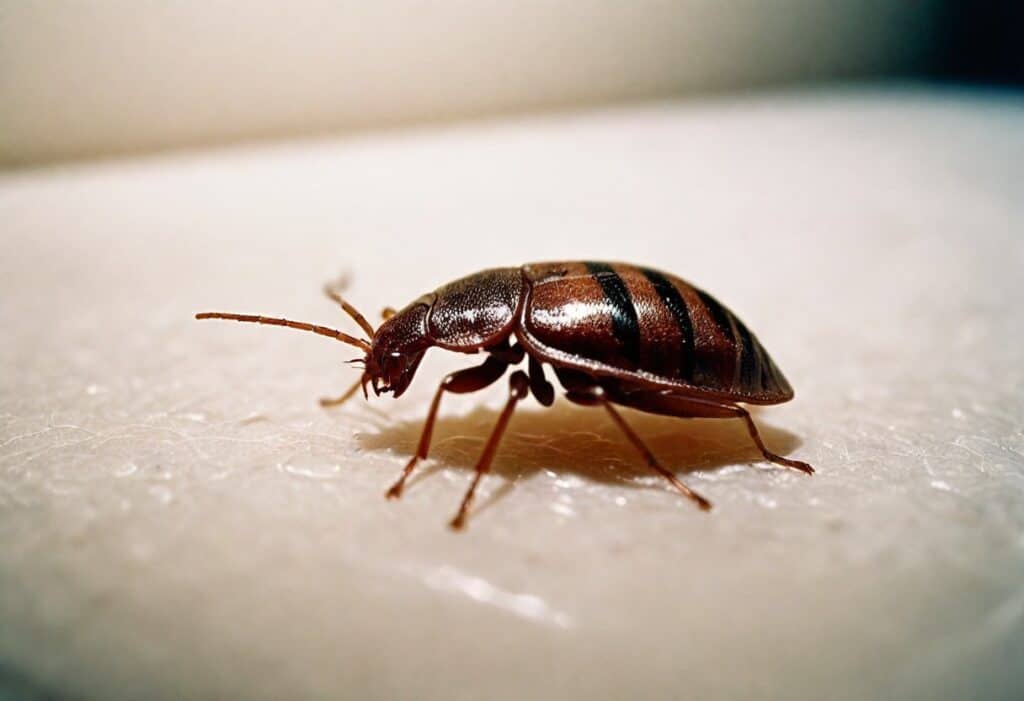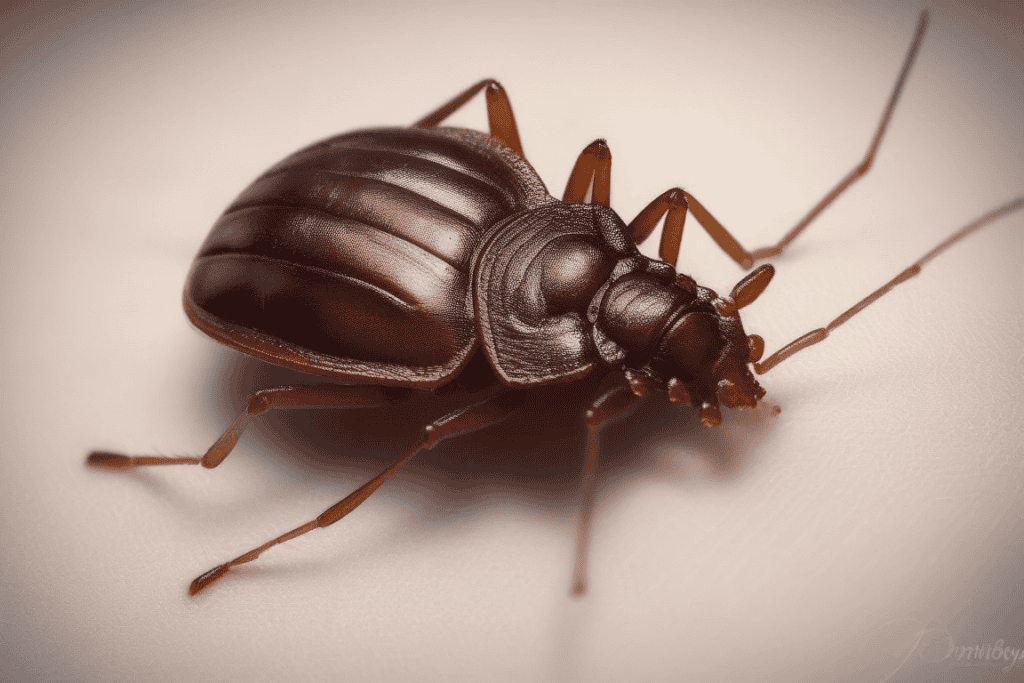Are you planning a trip to a hotel soon?
If so, watch this video and learn how to protect yourself from those blood-sucking pests: Bedbugs!
Hotels and motels are a necessary evil, but you don’t want to come home with more than just old memories! We’ll discuss tips on recognizing signs of bedbug infestation and what precautions to take before and after check-in.
We’ll also show you how to inspect your room when you arrive. Don’t allow those pesky critters to ruin your trip or vacation. Watch now for tips on keeping them away!
Table of Contents
What are Bedbugs?
Bed bugs are small parasitic insects that feed on the blood of humans and other mammals.
They are reddish-brown, flat, and oval-shaped, with a size ranging from 1 to 7 millimeters long. Bed bugs can hide in tiny crevices and cracks, making them difficult to spot with the naked eye.
These pests tend to be more active at night when their hosts are asleep.
They use their elongated mouthparts to pierce the skin of their victims, injecting a numbing agent that allows them to feed unnoticed for several minutes. After feeding, they retreat into hiding places to digest their meals and lay eggs.
These bugs reproduce quickly and can infest an entire hotel room in just a few weeks.
To prevent infection and bed bug bites while staying at hotels, you must inspect the room before sleeping in any new location and keep luggage off the floor out of reach of these pests.
What are the Telltale Signs of Bedbug Infestation in a Hotel Room?
1. Blood stains on sheets or mattresses
Blood stains are the most prevalent sign of bed bug infestation in hotels.
Bed bugs feed on human blood and leave rusty or reddish-brown stains on bedding, furniture, and walls. These stains can be difficult to remove and may cause unpleasant odors over time.
Blood stains do not always indicate bed bugs, as other factors can cause them, such as menstrual bleeding or accidental injury.
However, you must take any signs of blood staining seriously in hotel rooms since they could indicate the potential for bed bug infestations.
2. Shed skins and eggshells near hiding places
Shed skins or eggshells are common signs of bed bug infestations.
These tiny bugs shed their exoskeletons as they grow, leaving behind skin casings that can accumulate in areas where they hide. The hiding places include cracks or crevices around beds or furniture.
These crevices may also harbor the eggshells of these bugs. The eggshells are tiny and white. You may find them in clusters where the bed bugs nest.
3. Fecal matter appearing as dark spots
Fecal matter is a telltale sign of bed bug infestation in hotels.
They appear as dark spots and are present on the bedding, mattresses, furniture upholstery, and box springs. They are typically small and can be hard to see with the naked eye.
However, if you suspect that there may be bed bugs in your hotel room, always look for this sign.
4. Musty or unpleasant odor
One of the most unpleasant signs of a bed bug infestation in hotels is the pungent and musty odor. This distinct smell is often described as sweet, sickly, or even reminiscent of coriander.
It results from the secretion that bed bugs release to communicate with one another and mark their territory. When you check into a hotel room, take a deep breath and try to identify any unusual smells.
If you detect an unpleasant odor, it could indicate bed bugs lurking nearby.
5. Dead insects
Dead insects, specifically bed bugs, are a common sight in hotels. You can find them in the seams of mattresses, headboards, and even the floor.
While dead bed bugs may seem like a good sign since they are no longer a threat to you, their presence indicates an infestation. Bed bugs reproduce quickly because their eggs can hatch in as little as ten days.
The lifespan of a bedbug can vary depending on some factors, including temperature, humidity levels, and access to food (i.e. blood).
Generally, they can live from four to six months or even longer under ideal conditions. However, if temperatures drop below freezing or rise above 115°F (46°C), their lifespan will be much shorter.
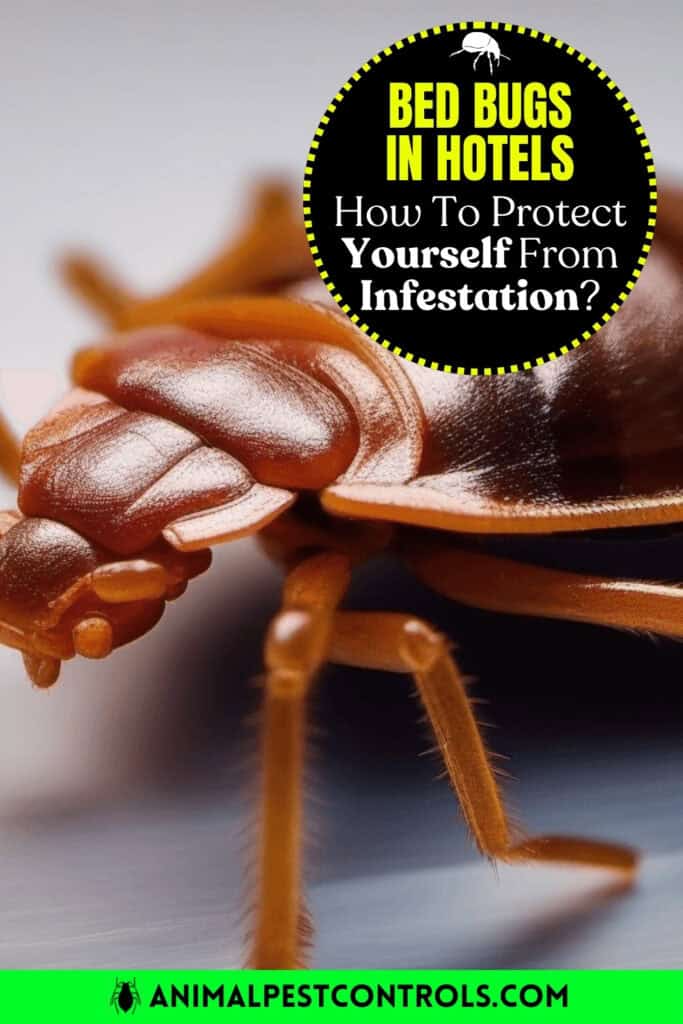
How to Protect Yourself from Bed Bug Infestation During A Trip or Vacation?
1. Read hotel reviews cautiously
When booking a hotel, reading reviews is an essential part of the process. However, when it comes to bed bugs in hotels, you must read those reviews with a critical eye.
While some negative reviews may be biased or exaggerated, others may contain valuable information about potential bed bug infestations. Look for patterns in the reviews – if multiple guests mention bed bugs or bites on their skin, it’s worth considering another hotel.
Note that not all hotels are forthcoming about bed bug infestations. Some may try to cover up the problem instead of addressing it head-on.
This problem is why looking beyond just the hotel’s website and official reviews can be helpful – check out third-party review sites and forums where guests can share their experiences openly.
2. Inspect the hotel room before unpacking
Inspecting the room before settling in is crucial in protecting yourself from bed bugs in hotels. Begin your inspection by putting your luggage on a hard surface, such as the bathroom counter or table, to prevent potential hitchhikers from jumping onto your belongings.
Next, pull back the sheets and examine the mattress seams, corners, and edges for any signs of bed bugs or their droppings. Ensure you inspect the headboard, nightstands, and other furniture near the bed.
Pay close attention to cracks and crevices where bed bugs may hide. In addition, check upholstered chairs and couches in the room for any signs of infestation.
If you notice any bed bugs during your inspection, notify the hotel staff immediately and request another room. Remember that it’s better to be safe than sorry!
By taking a few minutes to thoroughly inspect your hotel room before settling in, you can protect yourself from a potentially costly and uncomfortable bed bug infestation.
3. Do not move to the adjacent rooms
When it comes to bed bugs in hotels, prevention is critical. If you have to change rooms due to a bed bug infestation, it’s crucial not to move into an adjacent room.
Bed bugs can travel through electrical sockets and plumbing, so moving next door may only result in the same problem. Furthermore, avoid rooms directly above or below the previous one.
These pests can crawl through walls and ceilings for their next meal.
Choosing a lodge not directly adjacent to or above/below the infested room will lower your risk of encountering these pesky insects.
4. Place your suitcase or items of baggage in a plastic or protective cover
One of the most common ways bed bugs spread is by hitchhiking on luggage. That’s why you should take precautions when traveling to prevent bringing these pesky insects back home with you.
One easy way to do this is by placing your baggage in a plastic or protective cover. These covers are widely available and inexpensive. You can purchase them from travel stores or online retailers.
Using a protective cover for your luggage can create an extra barrier that prevents bed bugs from crawling into your bags while in transit or storage.
This method also helps protect against other types of pests and dirt during transportation.
You must use these covers if you’re staying in hotels or hostels where bed bug infestations are prevalent.
5. Place your suitcase or luggage on elevated positions
Another way to protect yourself from bed bug infestation when staying in a hotel is by placing your luggage in elevated positions.
Bed bugs tend to crawl up and hide in the seams and crevices of furniture, particularly beds, and can easily climb onto your belongings.
Placing your bags on elevated surfaces such as luggage racks, tables, or countertops can minimize the likelihood of bed bugs crawling into them.
Never leave your clothes scattered around the room or and try not to store them in dresser drawers. Instead, keep all clothing items inside your suitcase and zip them up tightly when not in use.
This way, you can prevent bed bugs from getting into your clothes and hitchhiking back home with you.
6. Inspect your luggage and wash all your clothes in hot water
Bed bugs are notorious hitchhikers and can easily stow away in your luggage or clothes. To prevent infestation, you must inspect your luggage before and after traveling.
When you arrive from a trip, place your bags on a hard surface such as a table or luggage rack instead of the floor or bed.
Check all compartments and pockets of your luggage for any signs of bed bugs, such as brownish-red stains or tiny bugs. In addition to inspection, washing all clothes in hot water is another effective way to eliminate bed bugs.
Bed bugs cannot survive in high temperatures, so washing laundry at 140°F (60°C) or higher will kill them. You can also dry the clothing on high heat for at least 30 minutes.
If you cannot wash your clothes immediately after returning from traveling, store them in separate plastic bags until you can do so.
7. Vacuum your luggage after your trip
An effective way to eliminate bed bugs from luggage is by vacuuming them. Start by emptying all contents of your bag onto a clean surface and thoroughly inspecting each item for signs of bed bugs.
Once everything is clear, use a handheld or upright vacuum cleaner with good suction power to thoroughly clean every inch of the bag’s interior and exterior.
Pay extra attention to seams, pockets, and other small crevices where bed bugs may be hiding.
After vacuuming, dispose of the vacuum bag in an outdoor trash bin or wash the collection container with hot soapy water if it is detachable.
Conclusion
Bed bugs are a challenging problem in hotels, and you should not take them lightly.
The best way to protect yourself is to check for signs of an infestation when you enter the room and take appropriate action if you find any signs.
Of course, you can leave your suitcase or luggage outside until you’ve had a chance to inspect the room thoroughly.
Taking these simple steps on every trip can protect you and prevent bringing unwanted guests into your home! Who knows – you might even be doing other guests a big favor!

